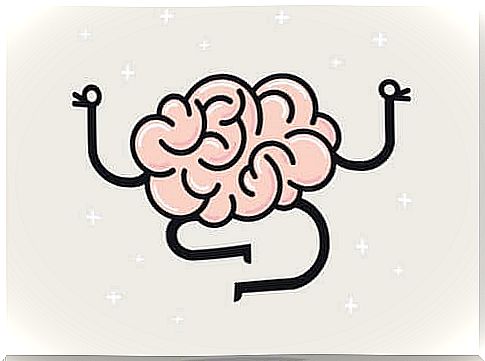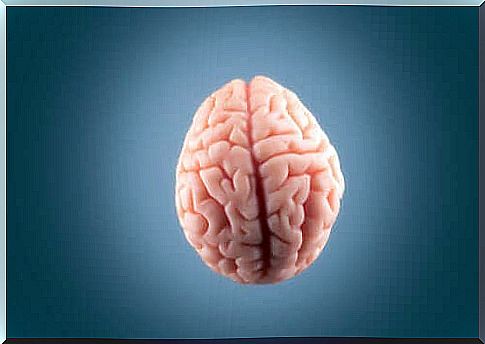The Brain Does Not Feel Pain – How Can That Be?

The brain is the organ responsible for processing pain, integrating incoming information through nerve terminals and for the interpretation of these signals. But in fact, the brain does not feel pain itself.
Therefore, pain is a vital signal that warns of an injury or destruction. And it sets in motion natural mechanisms to solve it. The way it does that is via a series of nerve endings that pick up a signal.
The names of these nerve endings are nociceptors, and they receive sensory information from the outside and inside of your body. They are at the end of the axons of the sensory neurons and they can transmit them to the brain. In addition, they can transmit information about mechanical, thermal or chemical lesions in one tenth of a second to the entire nervous system.

Why does the brain not feel pain?
Paradoxically, there are nociceptors in the brain, but the brain itself cannot feel pain. Far from knowing the benefits that this has been to human survival, it allows brain surgeons to operate on the brain using only local anesthesia.
Therefore, the patient can remain awake while the surgery is taking place. This is good because they can confirm that everything is going as it should.
You may be thinking that your brain is hurting or that it is about to explode when you have a headache. However, what you really feel is the nerve tissues, meninges, blood vessels and muscles around the brain.
These elements that have nociceptors can become inflamed, damaged, or dilated. Therefore, they send an alarm to the brain that something is wrong and it can lead to an extensive headache.
In cases such as brain tumors or cerebral hemorrhage where there is pain, it does not really come from the brain. In fact, it comes from the pressure that the surrounding blood vessels are exposed to.
Brain pain and headache
In general, headaches are not serious and are mainly due to tension headaches, migraines, sinusitis or inflammation of the throat. The head can also hurt due to the common cold, flu or other viral illnesses that can cause changes in the blood supply or inflammation.
However, there are other, more serious problems that can cause pain. Some of them are:
- An abnormal connection between the arteries and the veins in the brain.
- A cardiovascular event that causes blood circulation to stop.
- Damaged blood vessels or brain aneurysms.
- Cerebral hemorrhage or intracerebral hematoma.
- Bleeding around the brain: Subarachnoid haemorrhage, subdural or epidural hematoma.
- Acute hydrocephalus or cerebrospinal fluid disorders.
- Very high blood pressure.
- Infection of the brain or surrounding tissues.

When should you talk to your doctor?
Since the brain does not feel pain, headaches are the primary symptom that signals damage to this organ. However, not all types of headaches indicate something serious, as indicated above.
You need to know when this pain may be due to a really serious cause so you can talk to your doctor. Therefore, medical attention is required when:
- The pain affects your daily life.
- It is stronger after physical activity.
- It has a sudden and explosive appearance.
- It is associated with disturbances in vision, mobility, language or memory.
- It’s worse after 24 hours.
- It manifests itself with other symptoms, such as fever, stiffness and nausea.
- There is redness in one eye.
- You have a history of cancer or a weakened immune system.
- The headache wakes you up and you can not fall asleep again.
Finally, when you have a headache, it is the tissues, veins and muscles around the brain that you feel. As you can see, despite being responsible for processing pain, the brain itself is not able to feel it.
Therefore, if your headache is atypical, consult a doctor who can assess whether it is due to damage to the tissues or inside the brain.









